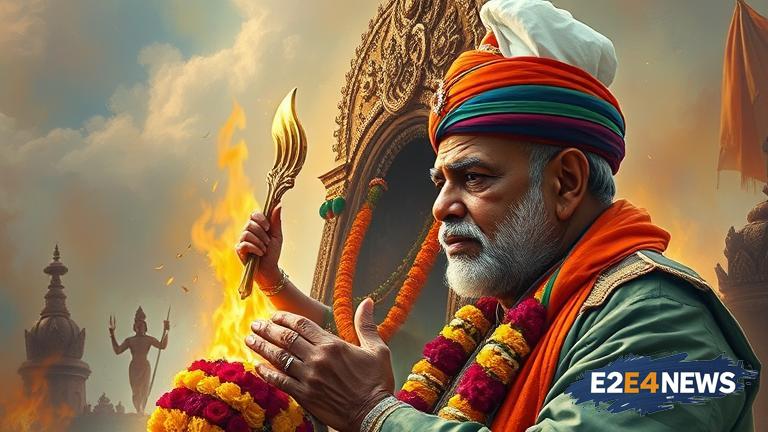Indian Defense Minister Rajnath Singh recently spoke about the importance of Maa Kali, a revered Hindu goddess, in the context of the Indian Army. According to Singh, Maa Kali has always had special blessings over the Indian Army, which has been a significant factor in the country’s military successes. The minister’s statement came during a recent event, where he emphasized the goddess’s role in protecting the nation and its armed forces. Maa Kali is often depicted as a fierce warrior goddess, known for her strength and bravery, which are qualities that are highly valued in the Indian military. The Indian Army has a long history of reverence for Maa Kali, with many soldiers and officers offering prayers and seeking her blessings before going into battle. Singh’s statement highlights the deep-seated cultural and spiritual connections that exist between the Indian Army and the country’s rich Hindu heritage. The minister also spoke about the importance of respecting and honoring the country’s cultural traditions, which are an integral part of India’s identity. The Indian Army has a diverse range of regiments and units, each with its own unique cultural and religious traditions, and Maa Kali is revered by many of these groups. The goddess is often associated with the concept of Shakti, or feminine power, which is seen as a powerful symbol of women’s empowerment and strength. In addition to her military significance, Maa Kali is also revered for her role as a protector and guardian, watching over the nation and its people. The Indian government has also recognized the importance of Maa Kali, with many official events and ceremonies featuring prayers and offerings to the goddess. The minister’s statement has been widely welcomed by many in India, who see it as a positive affirmation of the country’s cultural heritage. However, some have also criticized the statement, arguing that it reflects a growing trend of militarization and nationalism in India. Despite these criticisms, the significance of Maa Kali in Indian culture and military history cannot be overstated, and her blessings continue to be sought by many in the country. The Indian Army’s reverence for Maa Kali is a testament to the enduring power of faith and spirituality in the country’s military tradition. As India continues to evolve and grow as a nation, the significance of Maa Kali and other cultural icons is likely to remain an important part of the country’s identity. The minister’s statement has also sparked a wider debate about the role of religion and culture in the Indian military, with many calling for greater recognition and respect for the country’s diverse cultural traditions. Overall, the story of Maa Kali’s blessings over the Indian Army is a complex and multifaceted one, reflecting the deep-seated cultural and spiritual connections that exist between the country’s military and its people.
